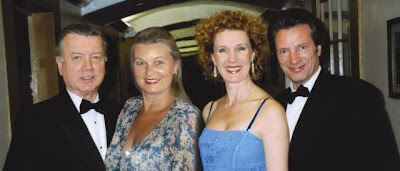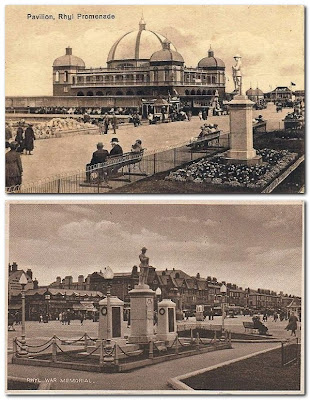


The picture above (TOP) shows the Twiltex shop that sells furniture, carpets and drapery at Westcliffe Buildings, Wellington Road, Rhyl. The shop is located between Butterton Road and St. John’s Church. A recent email from Mr. John Jones has revealed that the site was once occupied by the Westcliffe Garage.
John says, “Attached are two photos of the Westcliffe Garage taken in the 1930s. My father, H.M. Jones – he is in the photos – ran the garage from about 1930 to his retirement in 1949. During World War 2 the army based at Kinmel Park Camp near Bodelwyddan requisitioned the garage for storing vehicles and equipment, so my father ran his business from Brig-a-Don Garage, which was on the other side of Wellington Road facing St. John’s Church.
“In addition to doing normal garage repairs Westcliffe Garage could accommodate up to 150 cars. In those days visitors tended to garage their vehicles under cover rather than leave them on the street during their stay. At this time we lived round the corner at 49 Butterton Road and later moved to 145 Wellington Road. At the rear of 145 there were a number of lock-up garages owned by my father and it was in one of these that Mr. Albert Gubay set up his Kwik-Save Discount business.
After retirement my father entered politics and was a councillor on Rhyl Urban District Council and Flintshire County Council.”
Thanks very much for the photos and information, John. Plenty there for us to chew on.
--
[This reference appears here for indexing purposes: Power Petrol.]
--
 A couple of weeks ago in Rhyl I took this photograph. You won’t find Peveril Terrace on a current street map, so where is it?
A couple of weeks ago in Rhyl I took this photograph. You won’t find Peveril Terrace on a current street map, so where is it?
















.jpg)












.jpg)







.jpg)









